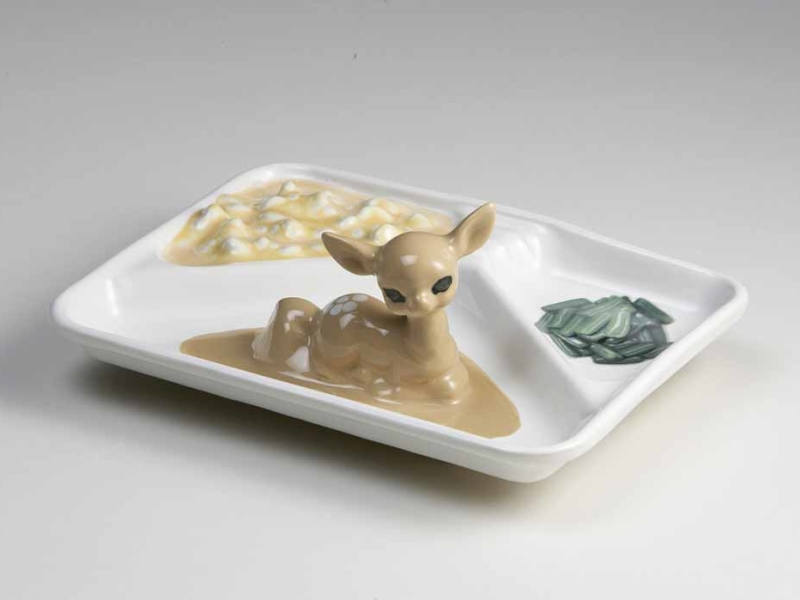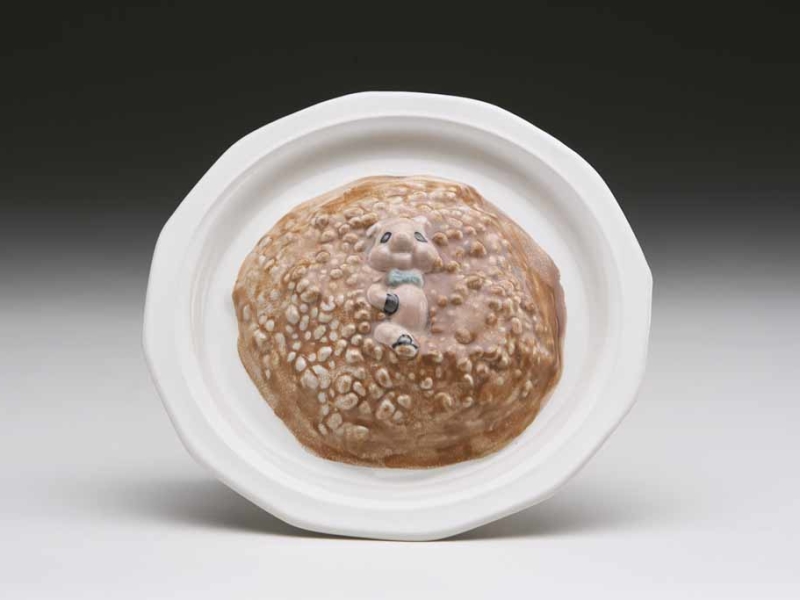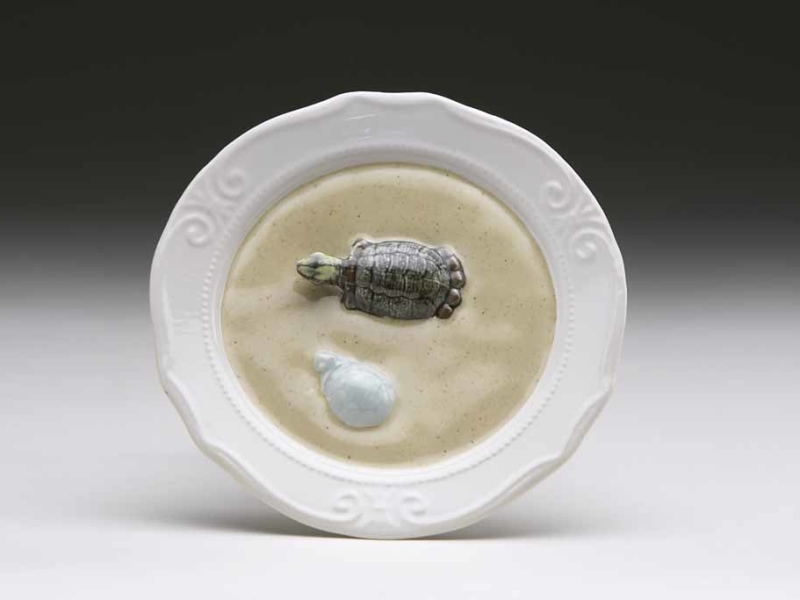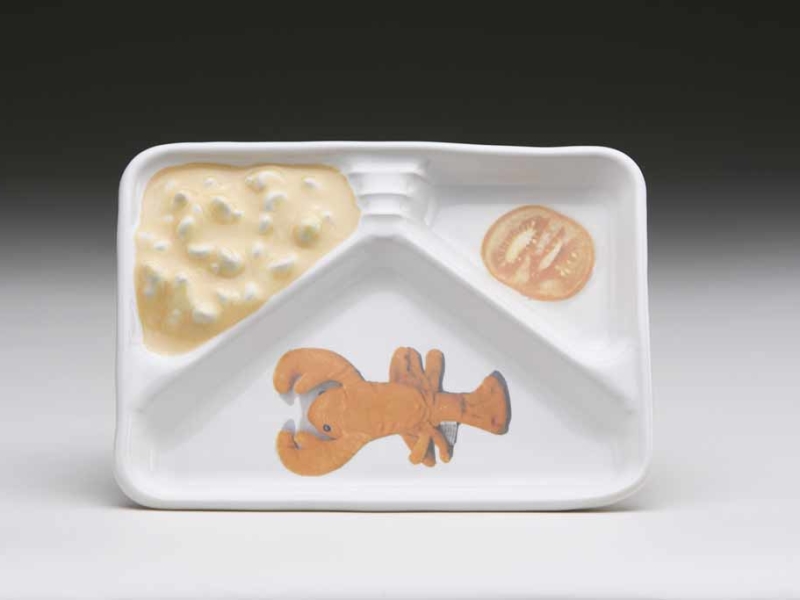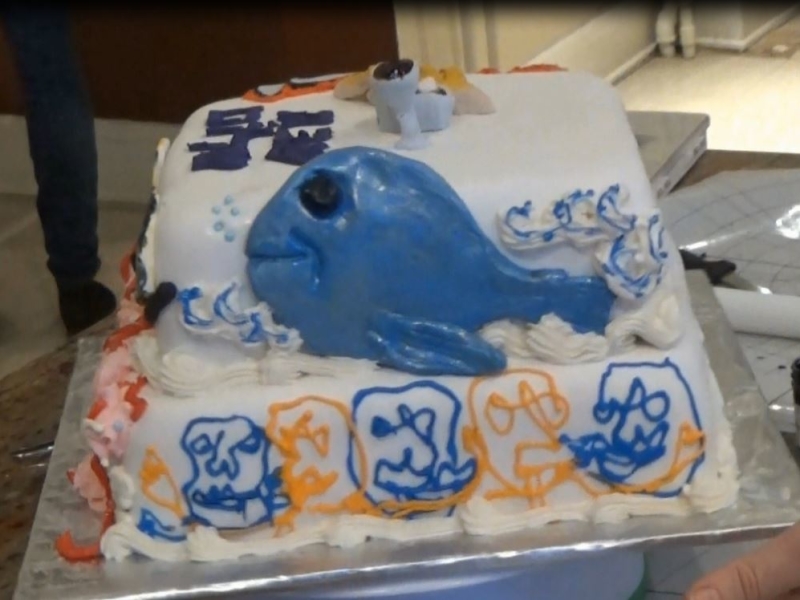
Consumption: Food as Paradox
January 30 – April 3, 2016
Consumption: Food as Paradox examines how food is inextricably linked to the social, political and economic aspects of life—class, culture, race, religion, gender and health. A baker’s dozen of contemporary artists, working in paint, collage, porcelain and printmaking, explore food and its connection to the world around them.
about the exhibition | artists
About the Exhibition
Consumption: Food as Paradox examines how food is inextricably linked to the social, political and economic aspects of life—class, culture, race, religion, gender and health. A baker’s dozen of contemporary artists, working in paint, collage, porcelain and printmaking, explore food and its connection to the world around them.
Food is enjoyable and accompanies a lifetime of celebrations. Sharing the tastes of our individual homes and homelands can be a way to cross divides between classifications of people—relating to others over a foodway can lead to greater cultural understanding and empathy. But that can also be displaced by tremendous anxiety. Passing down traditional recipes can morph from intergenerational connections to memories of slaves who worked in the kitchen and the continuation of the domestic sphere forced on women. Images of watermelon and berries evoke racial tropes. Adorable animals in TV dinners remind usof the flesh that we consume, but obscure with words like ‘meat,’ ‘beef’ and ‘pork.’ And piles of this meatreveal gluttonous men who treat women with a similar desire for consumption.
Food can be made holy, blasphemous or banal based on the religion, class and race that it is tied to. How can we know what arbiters of taste and health we can trust? Foods are alternately villainized and sainted—their status constantly in flux, depending upon a variety of mysterious government agencies and corporations. We are a nation obsessed with dieting but plagued by illnesses resulting from the ways food affects our bodies. The artists of Consumption investigate these concerns, propose questions to ask, actions to take and, occasionally, offer a view of a future that is healthier in body and cross-cultural relations.
Aden Weisel
Artists
Matthew Adelberg
S. Ross Browne
Anna U Davis
Dave Eassa
Roberto Guerra
Christi Harris
Sue Johnson
Jeffrey Kent
Delita Martin
Arvie Smith
Christina St. Clair
Eric Telfort
Stephen Towns
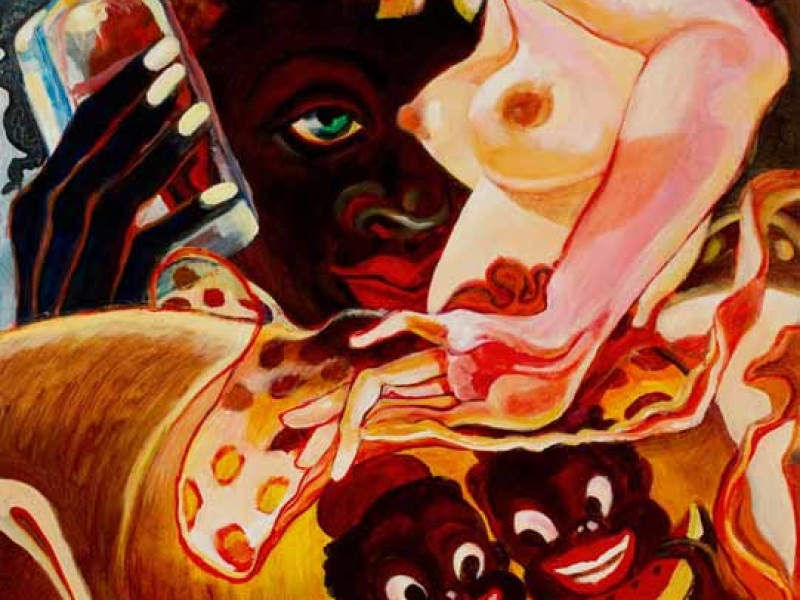
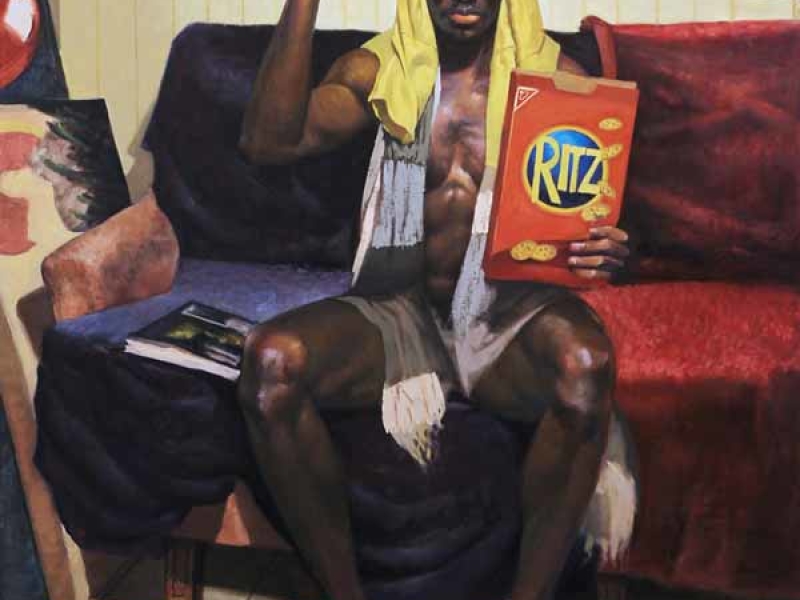
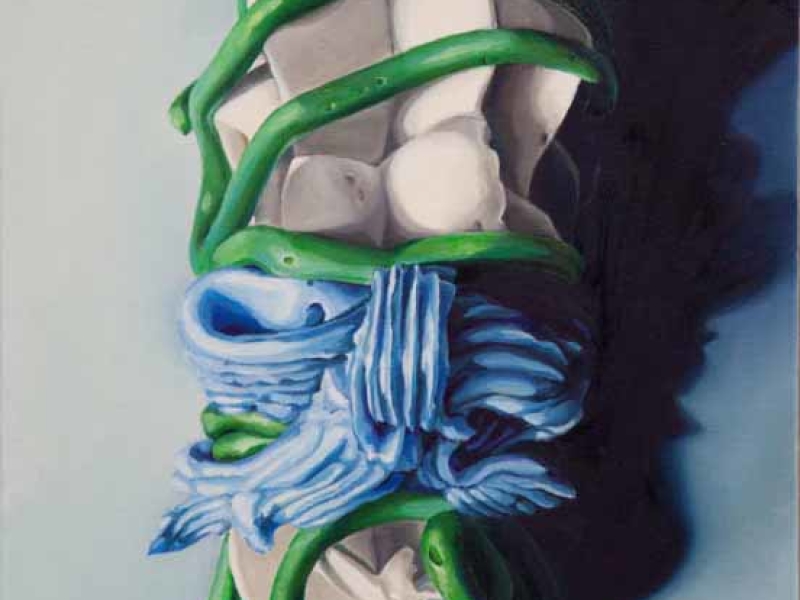
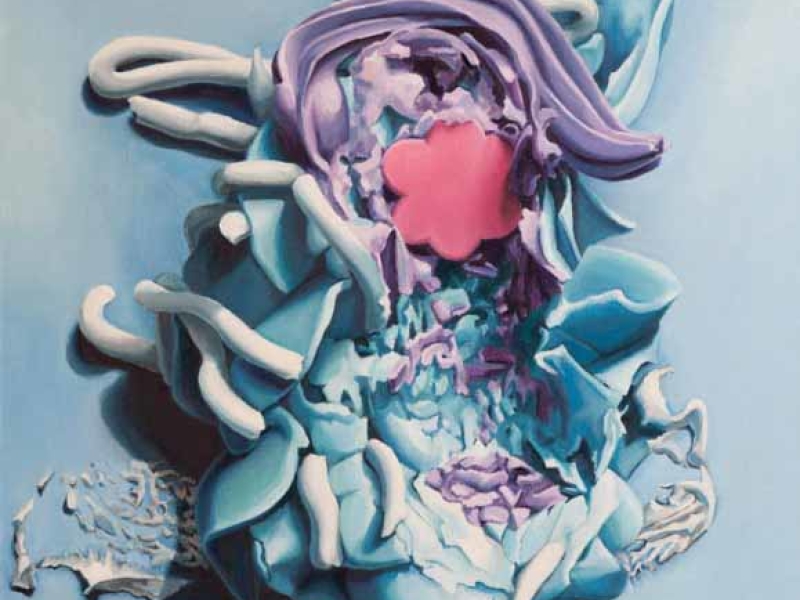
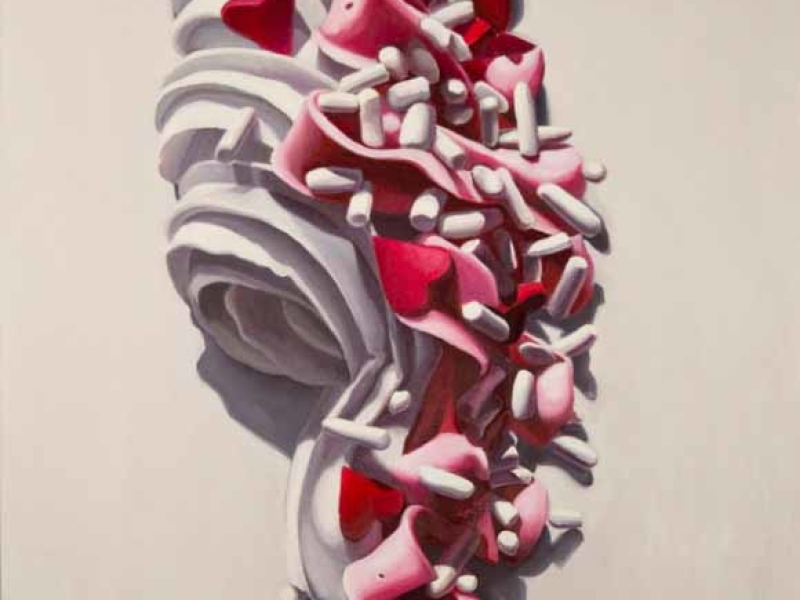
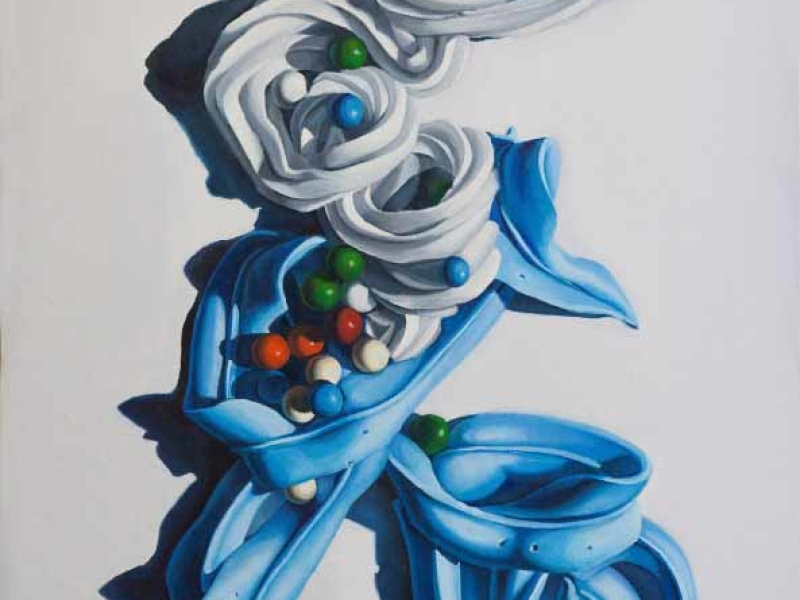
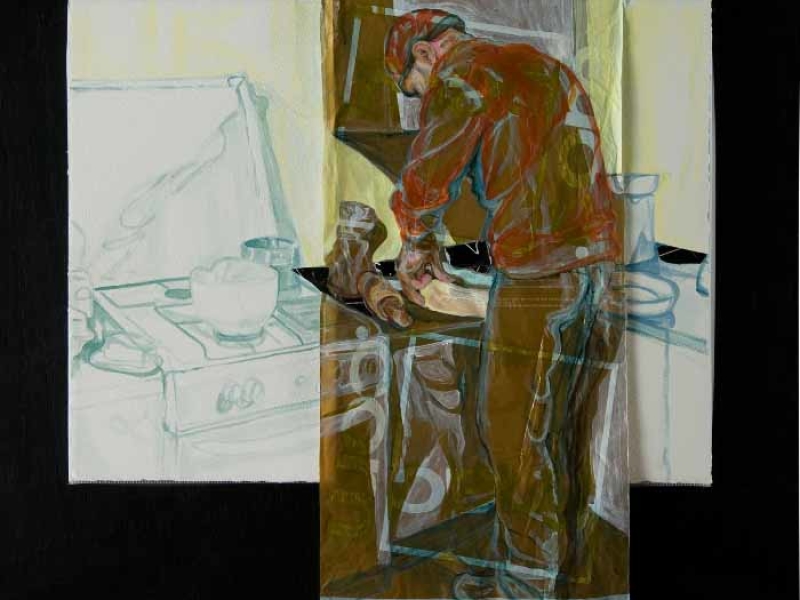
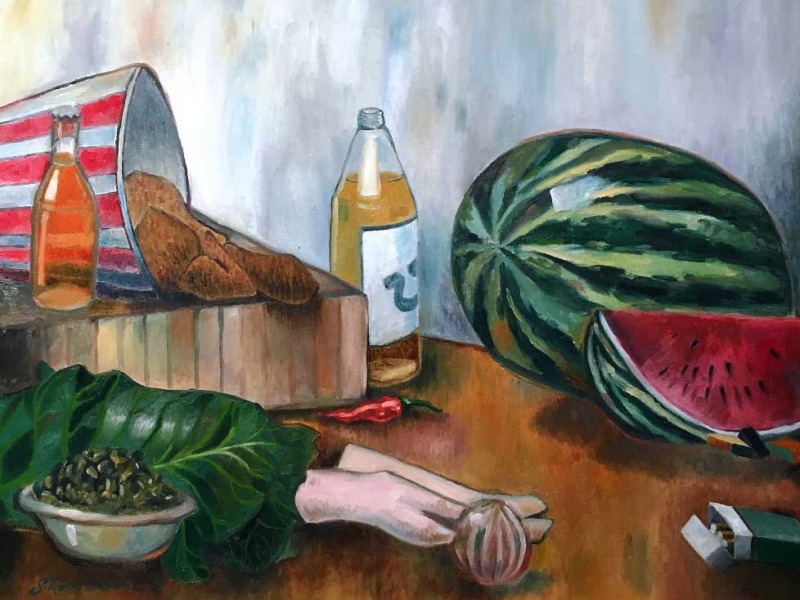
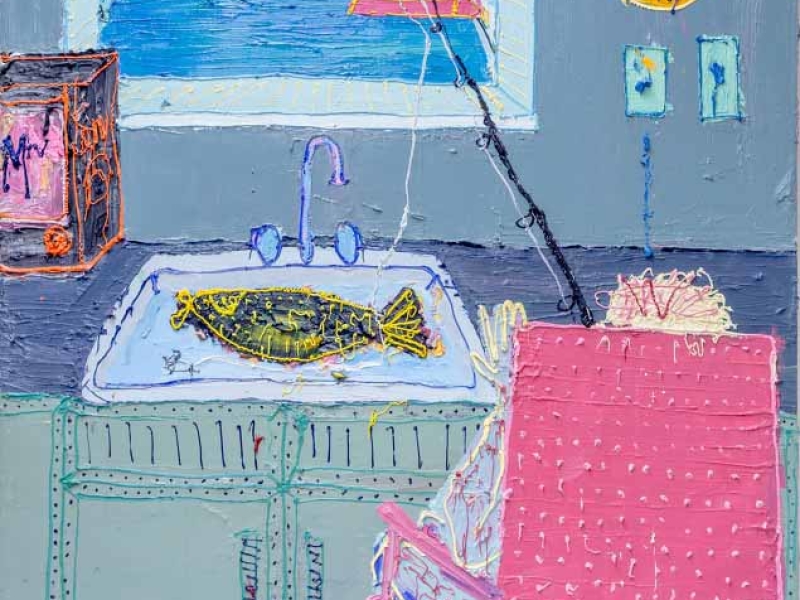
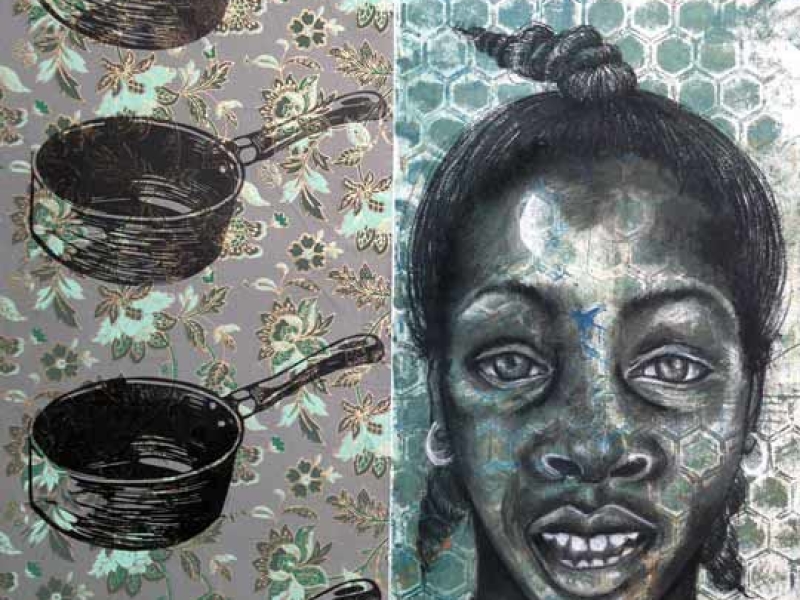
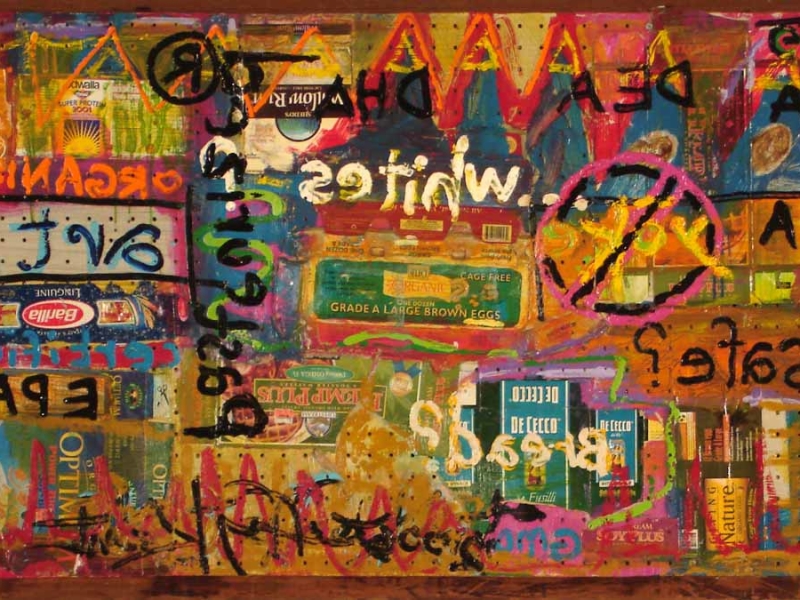

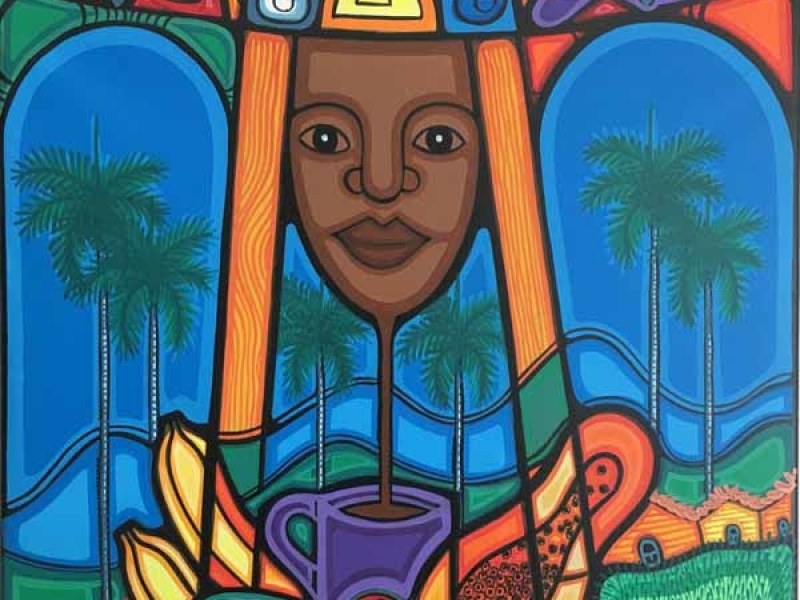
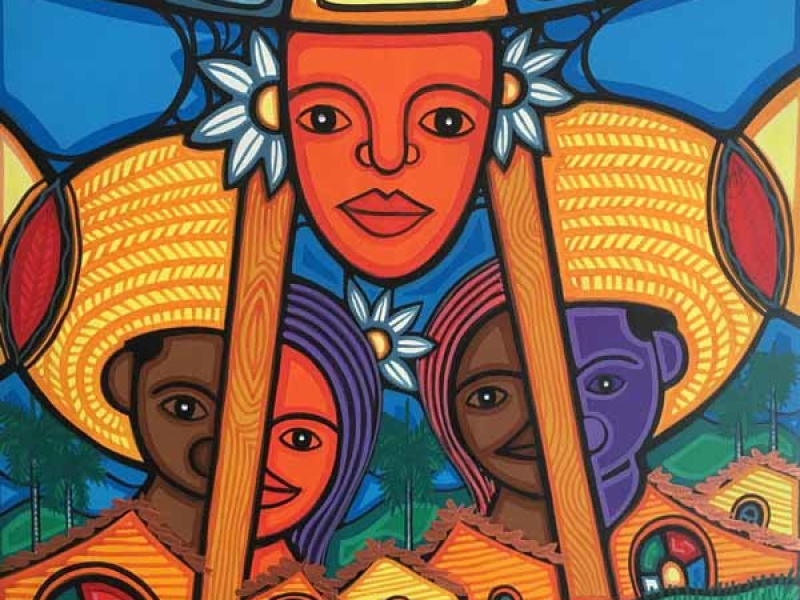
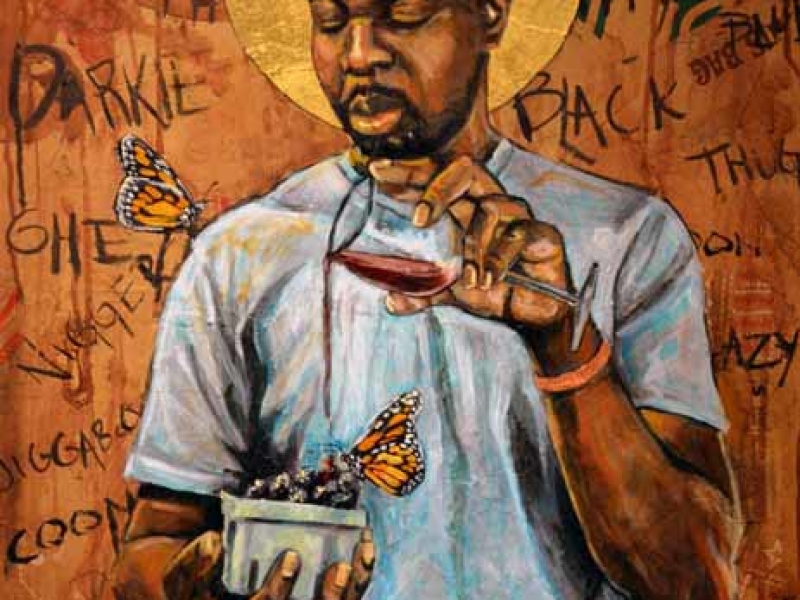
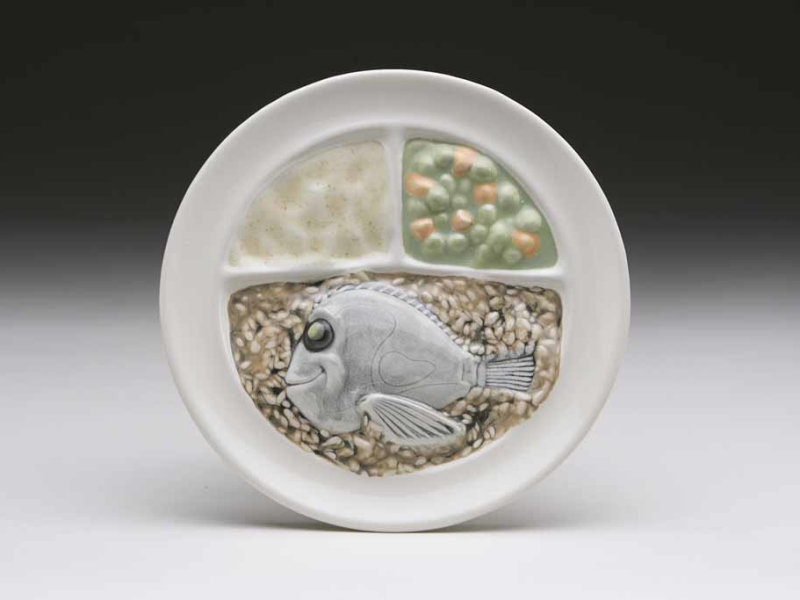
![Sue Johnson_Jell-O Surprise (Fawn) [yellow]_unique_2007_Slip-cast vitreous china_9.25 x 9.25 x 3.5 in._$1800_view 2](https://galeriemyrtis.net/wp-content/uploads/2016/02/Sue-Johnson_Jell-O-Surprise-Fawn-yellow_unique_2007_Slip-cast-vitreous-china_9.25-x-9.25-x-3.5-in._1800_view-2-800x600_c.jpg)
